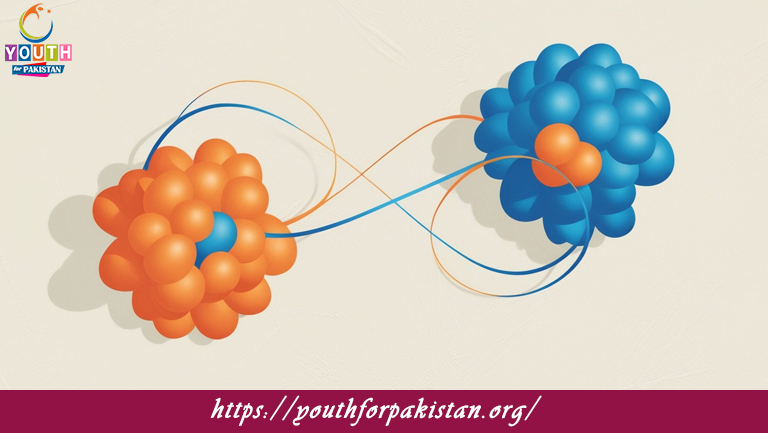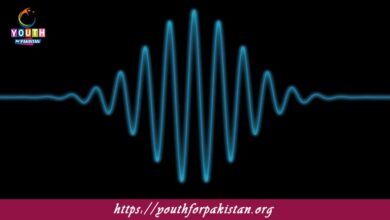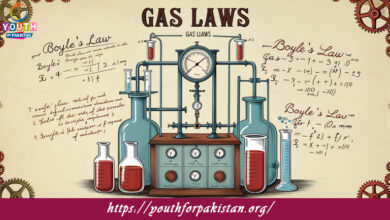Covalent Bond MDCAT MCQs with Answers

Welcome to the Covalent Bond MDCAT MCQs with Answers. In this post, we have shared Covalent Bond Multiple Choice Questions and Answers for PMC MDCAT 2024. Each question in MDCAT Chemistry offers a chance to enhance your knowledge regarding Covalent Bond MCQs in this MDCAT Online Test.
A covalent bond is formed when:
a) Electrons are transferred from one atom to another
b) Electrons are shared between two atoms
c) Atoms are held together by metallic bonds
d) Ions are formed from atoms
Which of the following molecules has a double covalent bond?
a) Methane (CH₄)
b) Water (H₂O)
c) Carbon dioxide (CO₂)
d) Ammonia (NH₃)
The bond formed by sharing one pair of electrons between two atoms is called:
a) Single covalent bond
b) Double covalent bond
c) Triple covalent bond
d) Ionic bond
In which of the following molecules is the covalent bond most polar?
a) O₂
b) H₂
c) HCl
d) CH₄
A triple covalent bond involves:
a) Two shared electron pairs
b) Three shared electron pairs
c) Four shared electron pairs
d) Five shared electron pairs
The molecule with a polar covalent bond is:
a) O₂
b) Cl₂
c) H₂O
d) N₂
In a covalent bond, the shared pair of electrons:
a) Belongs to one of the atoms
b) Is equally shared by both atoms
c) Is transferred to the other atom
d) Is not shared
Which of the following molecules has a triple covalent bond?
a) N₂
b) H₂O
c) CO₂
d) CH₄
The shape of a molecule with four covalent bonds and no lone pairs on the central atom is:
a) Linear
b) Bent
c) Tetrahedral
d) Trigonal planar
Which molecule contains a single covalent bond between carbon and hydrogen?
a) Methane (CH₄)
b) Ethene (C₂H₄)
c) Ethyne (C₂H₂)
d) Carbon dioxide (CO₂)
The bond order of a molecule with a single bond is:
a) 0
b) 1
c) 2
d) 3
In which of the following molecules is the central atom sp³ hybridized?
a) Carbon dioxide (CO₂)
b) Methane (CH₄)
c) Ammonia (NH₃)
d) Boron trifluoride (BF₃)
Which of the following has the highest bond energy?
a) Single covalent bond
b) Double covalent bond
c) Triple covalent bond
d) Ionic bond
The molecule H₂O has:
a) Two single covalent bonds and two lone pairs on the oxygen atom
b) Two double covalent bonds
c) One single covalent bond and one double covalent bond
d) Two triple covalent bonds
The bond angle in a water (H₂O) molecule is approximately:
a) 90°
b) 109.5°
c) 120°
d) 180°
The molecule with the highest number of covalent bonds is:
a) CO₂
b) CH₄
c) H₂O
d) N₂
Which of the following bonds is not covalent?
a) C-H
b) N-H
c) Na-Cl
d) O-H
In a covalent bond, the bond strength is generally highest in:
a) Single bonds
b) Double bonds
c) Triple bonds
d) Quadruple bonds
The molecular geometry of a molecule with three single covalent bonds and one lone pair on the central atom is:
a) Tetrahedral
b) Trigonal pyramidal
c) Linear
d) Bent
In which of the following is the covalent bond characterized by the presence of a lone pair on one atom?
a) H₂
b) N₂
c) HCl
d) NH₃
The concept of bond polarity is best described by:
a) Sharing of electrons equally
b) Transfer of electrons from one atom to another
c) Unequal sharing of electrons
d) Metallic bonding
The bond in methane (CH₄) is:
a) Covalent
b) Ionic
c) Metallic
d) Hydrogen
Which of the following has a polar covalent bond?
a) N₂
b) O₂
c) HF
d) Cl₂
The molecule with a linear shape and two covalent bonds is:
a) H₂O
b) CO₂
c) CH₄
d) NH₃
The type of covalent bond where both electrons are shared equally is known as:
a) Polar covalent bond
b) Nonpolar covalent bond
c) Co-ordinate covalent bond
d) Ionic bond
The molecule with a central atom forming sp² hybridized bonds is:
a) Methane (CH₄)
b) Carbon dioxide (CO₂)
c) Ethene (C₂H₄)
d) Ammonia (NH₃)
In a water molecule, each hydrogen atom forms a covalent bond with:
a) One oxygen atom
b) Another hydrogen atom
c) A chlorine atom
d) A nitrogen atom
The covalent bond in which two pairs of electrons are shared is called a:
a) Single bond
b) Double bond
c) Triple bond
d) Quadruple bond
The bond in ethyne (C₂H₂) is characterized by:
a) A single covalent bond between carbon atoms
b) A double covalent bond between carbon atoms
c) A triple covalent bond between carbon atoms
d) No covalent bonds between carbon atoms
The molecule that exhibits a tetrahedral geometry is:
a) Water (H₂O)
b) Methane (CH₄)
c) Boron trifluoride (BF₃)
d) Ammonia (NH₃)
A molecule with a central atom having sp³ hybridization is likely to have:
a) Three bonds and one lone pair
b) Four bonds and no lone pairs
c) Two bonds and two lone pairs
d) Three bonds and no lone pairs
The molecular shape of a molecule with one double bond and two single bonds is:
a) Linear
b) Trigonal planar
c) Tetrahedral
d) Bent
The bond angle in a molecule with sp² hybridization is approximately:
a) 90°
b) 109.5°
c) 120°
d) 180°
In a covalent bond, if the atoms are the same, the bond is:
a) Polar covalent
b) Nonpolar covalent
c) Ionic
d) Metallic
The presence of lone pairs on the central atom affects the:
a) Bond length
b) Bond order
c) Molecular shape
d) Bond polarity
The covalent bond with the longest bond length is:
a) Single covalent bond
b) Double covalent bond
c) Triple covalent bond
d) Ionic bond
The bond in the carbon monoxide (CO) molecule is:
a) Single covalent
b) Double covalent
c) Triple covalent
d) Ionic
The type of covalent bond where both electrons come from one atom is called:
a) Polar covalent bond
b) Nonpolar covalent bond
c) Co-ordinate covalent bond
d) Ionic bond
The molecule with sp hybridization has:
a) Two sigma bonds
b) Two pi bonds
c) Three sigma bonds
d) Three pi bonds
The presence of a double bond in a molecule typically results in:
a) Increased bond length compared to a single bond
b) Decreased bond strength compared to a single bond
c) Increased bond strength compared to a single bond
d) No change in bond length compared to a single bond
If you are interested to enhance your knowledge regarding Physics, Chemistry, Computer, and Biology please click on the link of each category, you will be redirected to dedicated website for each category.





